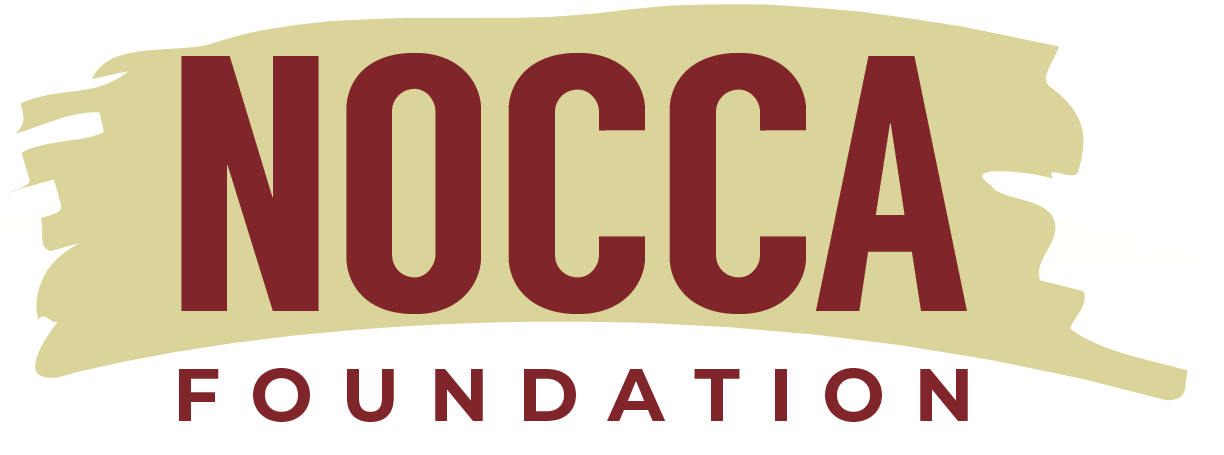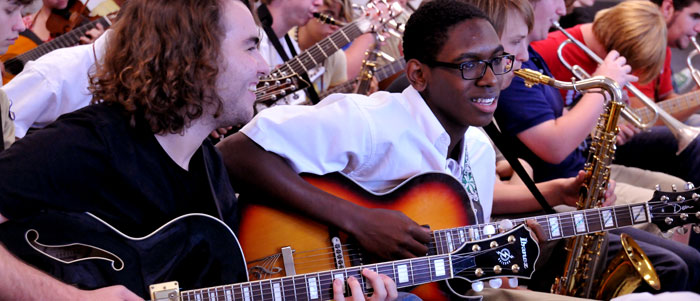“How do you learn the vocabulary of jazz without becoming a slave to it? Then how do you develop your own voice?” Jazz guitarist Joel Harrison asked jazz and classical students as he began his master class prior to his Center Stage premiere of Singularity.
Over the next 90 minutes, he and violinist Christian Howes guided students through thought processes and exercises designed to simplify and strengthen their improvisation skills.
Named a 2010 Guggenheim Fellow, Harrison has spent his career – as a guitarist, composer, arranger, vocalist, songwriter and bandleader – deftly weaving the vocabulary of jazz, classical, country, rock and world music into his own voice. He stood before NOCCA’s jazz and classical students as a bridge between the two. With Singularity, as with previous work, Harrison utilizes techniques of contemporary classical composers in composition for a septet of modern jazz’s finest instrumentalists.
“So, how much time have you spent playing in odd time signatures?” he asked as he delved deeper into technique. “Traditional jazz was four-four or three four. Now, odd time signatures are everywhere. Musicians are making phrasing hipper by dividing more. It’s important that you grapple with them.” Then he had students grapple with odd time signatures as a means to towards improvisation.
“Now when you’re improvising, what’s going on in your head?” he asked several students. “I’m trying to make an idea,” tentatively replied one. To help them along, Harrison gave them his own take: “I think a lot of it has to do with how you shape melodies, where you place beats.” Returning to his original theme, he asked them to displace melodies in odd time signatures. As students struggled with the exercise he merged onto a different road, asking students to think of a song as story, with themes as characters that have to be introduced. “I want you to introduce the actors slowly but surely; this gives you a place to build a solo. But I want you to captivate me.”
Classically trained violinist Christian Howes provided students with other approaches to improvisation. “There are more reasons to play music than to make it sound good. The more I worry about whether it sounds good, the more I get in the way. Try picking any emotion and improvising what that emotion sounds like. Improvise while you are practicing technique. Remember, practicing should sound bad. Otherwise you are just showing off for the person in the next practice room or procrastinating new skills you need to learn. A lot of us are inhibited about improvisation. You don’t have to consider it something new to master for its own sake. Use what you already know to improv.”
“If we are talking about creating your own sound,” Harrison coaxed students, “it needs to transcend vocabulary. I want you all to think of music in as many different ways as possible. This is the time in your lives when your imagination should run free.”


Pingback: March 16: Acclaimed Jazz Violinist Christian Howes In Concert At NOCCA | The NOCCA Institute